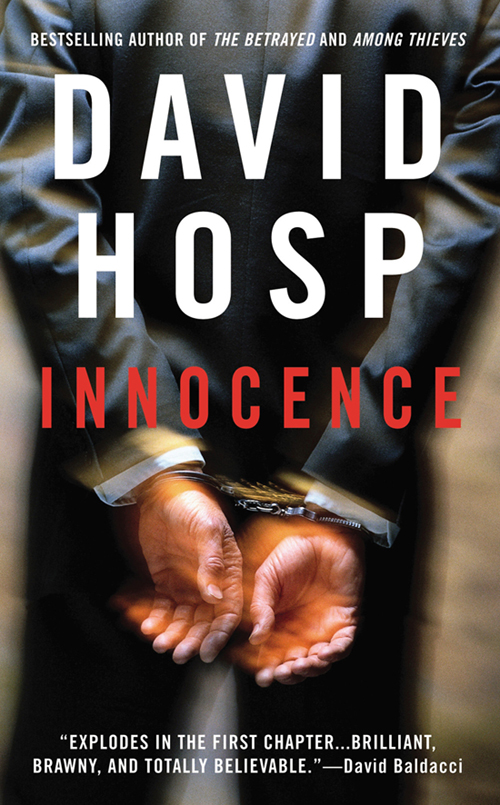Boat Commute & Luck Led to Lawyer's 2nd Gig as Author of Legal Thrillers

David Hosp never intended to write a book.
But, after getting married and moving to a new home in suburban Boston, the Goodwin Procter lawyer started commuting to work by boat through the Boston Harbor islands. And remembering how he used to enjoy writing, he decided to spend the hour or so of extra time the commute provided honing his fiction skills.
About halfway through his initial practice effort at writing a novel, scene-by-scene, he had become engaged with the characters. So he decided to finish the book, he tells the ABA Journal, wanting, much as an ordinary reader would, to know how the story ended. Then, in a plot twist that would have come across as contrived in a work of fiction but actually happened in real life, he acquired a top agent.
Hosp says the agent, a neighbor of his parents in Rhode Island, was persuaded by Hosp’s father to take a look at the book. Although the agent didn’t intend to do so himself, he promised to assign the job to an underling. By fortuitous happenstance, however, the draft novel happened to be at hand one day when the agent didn’t have anything else to read. After three pages, he was hooked.
Soon Hosp was the author of Dark Harbor, which was published in 2005, followed by The Betrayed (2006) and Innocence (2007), which was inspired by an actual case that Hosp handled for the New England Innocence Project. A Boston Globe article talks about the case and its tragic aftermath.
Innocence has just been released in paperback, and Hosp’s latest book, Among Thieves, is being published in hardcover this month. It was inspired by a record-breaking art theft at the Isabella Stewart Gardner Museum.
In addition to their law-related plots, Hosp’s books incorporate a practice theme that will strike a chord with many attorneys.
Musing, in Innocence, over “the hazards of a well-planned life,” a young BigLaw attorney who is “the only son of an overachieving, hypermotivated couple clinging to second-tier wealth” realizes he began questioning, too late, their definition of success “in the narrow terms of material wealth and the recognition of the appropriate professional set.”
Unable to step aside from the competition, “He tried to refocus, even tried to sabotage his studies, but nothing worked,” Hosp wrote. “He graduated at the top of his class. After law school, he initially planned to work for some sort of public interest concern, a place where he would make little money but might have an impact on something that actually mattered to him. But then Howery, Black made him an offer, and no one turns down a law firm like Howery, right?”
Although gratified by his the success of his books (Innocence hit the Boston Globe’s best-seller list), Hosp points out that he is no John Grisham or Scott Turow and considers his career as an author secondary to his work as a lawyer.
“Ninety-five percent of the work has been done on my commute,” he says, which lasts “about 35 minutes on the slower boats, which I try to take.” By arriving for the boat about 10 minutes early, he can get “a good solid 40 minutes of writing done” each way to and from Goodwin Procter, Hosp says.
Although he started his writing career in longhand he has since switched to a laptop. This led to the biggest impact his work as an author has had on his legal career, he notes—a significant improvement in his typing skills.
Treating writing as an avocation means that he enjoys it and doesn’t have to worry about whether his books are a commercial success, he says.
“To me, the fun of the process is when you’re writing, and it doesn’t happen that often, but when you’re writing and it almost seems to be happening as you’re writing,” Hosp says of the experience of actually typing a novel into his laptop. He gets to this stage after he has mapped out his characters’ backgrounds and developed a rough plot.
At this point, when the book is going well, “characters are saying things almost in real time in your head,” he explains, “and it feels like it’s the characters that are writing themselves rather than you trying to force the character to do something.”
Asked what advice he would offer to other attorneys interested in writing a book, Hosp says that “getting anything published really involves lightning striking, one way or another,” no matter how good the book is. But “if you love to write,” he says, “that you can make happen.”
Related coverage:
ABAJournal.com: “Train Ride Home Took Lawyer on Journey Toward Writing Book About Christmas 1945”
American Lawyer: “Goodwin Procter Partner Is Also a Part-Time Mystery Man”
Boston Globe (2007): “Lawyer weaves fact into fiction”
Express Yourself (Sunday Express): “Portrait of a $500M Art Mystery”
Express Yourself (Daily Express): “How Art is Paying for Terrorism”
Thoughts from an Evil Overlord: “Review: Among Thieves by David Hosp”



